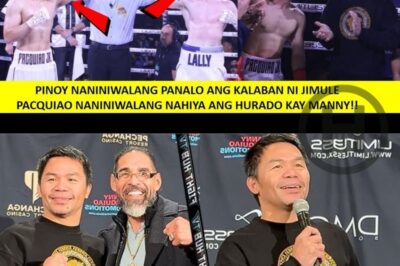Bea Alonzo vs. Cristy Fermin: Behind the Cyber Libel Case That Shook Philippine Showbiz
Abstract
In one of the most talked-about legal battles in Philippine entertainment, award-winning actress Bea Alonzo filed multiple cyber libel complaints against veteran showbiz columnist Cristy Fermin, accusing her of maliciously spreading false information online. The conflict highlights the tension between freedom of expression and responsible journalism. This article explores the origins of the conflict, the legal basis of the complaints, reactions from both camps, and what this case means for the future of celebrity-media relations in the digital age.
1. Introduction: A Legal Storm in Showbiz
In May 2024, actress Bea Alonzo made headlines when she filed three cyber libel cases against several online personalities, including Cristy Fermin, a veteran entertainment columnist and host of the YouTube-based show Cristy Ferminute.
The case stemmed from public statements made by Fermin and her co-hosts regarding Bea’s personal and financial life—including her breakup with Dominic Roque, tax-related rumors, and alleged labor issues—all of which Bea’s legal team claimed were false and defamatory.
2. The Core Allegations: What Triggered the Case
Bea’s legal complaints alleged that Cristy Fermin and her co-hosts:
Spread malicious rumors about the reason for her breakup with actor Dominic Roque.
Accused Bea of being involved in tax evasion without evidence.
Suggested she was facing a labor complaint from a former employee, which her camp denies.
Repeatedly used her name and personal life to attract online views for their YouTube show.
According to Atty. Joey Garcia, Bea’s lawyer:
“The defendants knowingly spread false statements that harmed Ms. Alonzo’s reputation. These were not merely opinions—they were presented as facts.”
3. The Legal Process: Charges and Warrants
The complaints were filed before the Quezon City Prosecutor’s Office, which later found probable cause to charge Cristy Fermin, along with her co-hosts Rommel Chika and Wendell Alvarez, under the Cybercrime Prevention Act of 2012.
In July 2025, the Quezon City Regional Trial Court issued arrest warrants against the three. Bail was set at ₱48,000 each. Fermin and her co-hosts later posted bail and were released pending trial.
4. Cristy Fermin’s Response: “See You in Court”
Cristy Fermin reacted swiftly on her program Cristy Ferminute, saying:
“She [Bea] has the right to file a case. We will face it in court.”
However, Fermin defended her statements as part of entertainment journalism, claiming that:
They didn’t fabricate stories—they merely “commented” on circulating rumors.
As a public figure, Bea should not be “onion-skinned.”
The show discussed not only negative topics but also praised Bea at times.
Despite these defenses, Fermin concluded with a direct message:
“See you in court.”
5. The Root of the Conflict: Commentary vs. Defamation
This case raises key questions about freedom of the press, especially in entertainment journalism:
Was Cristy Fermin reporting, or speculating?
Do YouTube-based commentary shows carry the same ethical standards as traditional media?
Is Bea Alonzo’s case setting a precedent for how celebrities can legally protect their image?
Legal experts argue that under Philippine cyber libel law, “actual malice” must be proven—meaning the statements were made knowing they were false or with reckless disregard for the truth.
6. Bea Alonzo’s Position: A Fight for Dignity
Bea remained mostly silent publicly but issued a statement through her legal team:
“This is not about revenge. It’s about protecting my name, my family, and my truth.”
Friends close to Bea revealed that she had been deeply affected by the repeated discussions of her breakup and personal matters on platforms with millions of viewers. While she respected press freedom, Bea reportedly felt that boundaries had been crossed.
7. What Makes This Case Unique
Unlike past showbiz feuds, this one includes several unique factors:
It’s legal—not just emotional. Bea is pursuing actual litigation, not just public rebuttals.
It involves digital platforms. The accused shows aired primarily on YouTube, raising questions about regulation.
It reflects a generational shift. Celebrities are becoming more assertive about controlling narratives.
8. History of Fermin’s Controversial Reporting
Cristy Fermin has long been known for her blunt commentary. This is not the first time she’s faced legal trouble:
In 2008, she was suspended from ABS-CBN due to remarks made against other celebrities.
In 2024, she also faced a cyber libel case from Sharon Cuneta and Kiko Pangilinan over allegedly malicious comments.
Dominic Roque, Bea’s ex-fiancé, also filed a complaint against her regarding “defamatory narratives” about their past relationship.
Fermin’s supporters claim her style is rooted in “traditional entertainment reporting,” while critics argue she crosses the line into personal attacks.
9. Industry Reaction: Divided Opinions
Celebrities
Some actors and actresses voiced quiet support for Bea, saying “enough is enough” when it comes to toxic gossip.
Others, however, warned about the chilling effect such cases might have on showbiz media.
Netizens
A strong majority of fans supported Bea on platforms like Twitter and Reddit.
Memes and hashtags like #ProtectBea and #CristyFerminChallenge trended in the weeks after the filing.
10. Legal Experts Weigh In
Attorney Marlon Reyes, a media law expert, told one publication:
“This is a strong cyber libel case. The courts will have to decide whether those shows exercised responsible journalism or veered into defamation territory.”
He added that YouTube personalities may now be held to similar standards as traditional broadcasters, especially when reaching large audiences.
11. Future Implications for Showbiz Media
This case may have ripple effects in the Philippine entertainment industry:
Vloggers and online hosts may begin moderating their content to avoid legal risks.
Public figures could feel more empowered to take legal action when they feel attacked.
Platforms like YouTube and Facebook might start enforcing stricter moderation on “gossip-style” content.
Some warn, however, of the danger of using libel cases to silence criticism or opinion.
12. Where the Case Stands Now (August 2025)
As of this writing:
The case is awaiting trial at the Quezon City RTC.
All three accused have posted bail.
Bea’s legal team says they are prepared to go all the way, including seeking damages and public apology.
The hearings are expected to begin in late 2025, and may run well into 2026, depending on court schedules.
13. Final Thoughts: Free Speech or Ethical Boundaries?
The Cristy Fermin–Bea Alonzo dispute isn’t just another celebrity feud—it’s a defining moment in how the Philippine entertainment industry navigates truth, ethics, and digital media.
As gossip shows evolve into YouTube vlogs and online platforms, the rules of engagement must also evolve. Whether Bea wins or not, her decision to fight back sends a clear message:
“Being a public figure does not mean being public property.”
Related Articles for Further Reading
-
[What Counts as Cyber Libel in the Philippines? Explaining the Law]
[Timeline: Bea Alonzo and Dominic Roque’s Relationship & Breakup]
[Cristy Fermin’s Most Controversial Moments: A Legacy of Gossip or Overreach?]
[How Celebrities Are Fighting Back Against Vloggers and Digital Hosts]
[Freedom of Expression vs. Defamation: When Media Goes Too Far]

News
Gerald Anderson Sets the Record Straight: Denies Rekindling Romance with Julia Barretto Amid Social Media Rumors (NH)
Gerald Anderson Sets the Record Straight: Denies Rekindling Romance with Julia Barretto Amid Social Media Rumors December 2, 2025…
Sibling Showdown: Eman Bacosa Faces Jimuel Pacquiao in an Epic Boxing Clash (NH)
Sibling Showdown: Eman Bacosa Faces Jimuel Pacquiao in an Epic Boxing Clash December 2, 2025 Introduction In the world of…
Jimuel Pacquiao Expected to Struggle Against Opponent, Says Disappointed Judge: Manny Pacquiao Feels Embarrassed (NH)
“Jimuel Pacquiao Expected to Struggle Against Opponent, Says Disappointed Judge: Manny Pacquiao Feels Embarrassed” December 1, 2025 Introduction The boxing…
Jinkee Pacquiao Drops Spicy Comment on Jillian Ward and Emman Bacosa Relationship: Social Media Ablaze (NH)
“Jinkee Pacquiao Drops Spicy Comment on Jillian Ward and Emman Bacosa Relationship: Social Media Ablaze” December 1, 2025 Introduction…
Netizen Regrets Handing Over Yu Menglong’s Clearest CCTV Footage to His Agency: Public Debate Erupts Online (NH)
“Netizen Regrets Handing Over Yu Menglong’s Clearest CCTV Footage to His Agency: Public Debate Erupts Online” December 1, 2025…
Sylvia Sanchez Nearly Melts with Joy at Zanjoe Marudo’s Heartwarming Gesture for Sabino’s Child (NH)
“Sylvia Sanchez Nearly Melts with Joy at Zanjoe Marudo’s Heartwarming Gesture for Sabino’s Child” December 1, 2025 Introduction In…
End of content
No more pages to load












